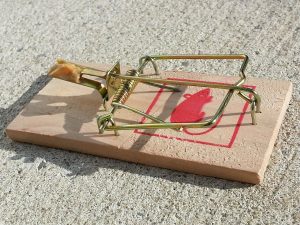CareerSteady
Employee Development and Retention

CareerSteady Workshop 6 / IWP 8
Realize Ideas
Individual work-process 8
1) Foster Curiosity
2) Initiate Activity
3) Find Relevant Information
4) Discover Possibilities
5) Strategize
6) Commit to a Project
7) Create Ideas
8) Realize Ideas
9) Test Ideas: Succeed or Fail
10) Use Failure: Rethink Ideas
11) Repeat Process: Part or All
12) Reach Achievement
Bonus) Gain Mastery
Creating an idea is much different than realizing an idea. The first happens often, the latter is rare.
Invention Looking at simple consumer goods, it is interesting to research the history. Many have a single inventor. This means that someone saw a problem that they wanted to fix. The resolution started with an idea and ended with a solution. Rarely do great ideas come on the first try. For most inventions, there was trial and error along the way.
Looking at simple consumer goods, it is interesting to research the history. Many have a single inventor. This means that someone saw a problem that they wanted to fix. The resolution started with an idea and ended with a solution. Rarely do great ideas come on the first try. For most inventions, there was trial and error along the way.
Complex consumer goods will typically have a history that is more involved. Development will most likely evolve from a teams of people, rather than a single person. Development may also continue over time, with new (and hopefully improved) versions replacing the old. Sometimes, the ideas involved extend into the branding of the product. The softer paper used for deluxe toilet paper will find itself a welcome part of the branding.
All companies start with an idea; which might be as simple as an idea to start a business. People working for a company realize the ideas of the company, with every hour worked. There is nothing wrong with the realization of ideas that one did not create. Since most complex ideas require a team, the participation will be far more important than the origination.
When working for a company, buying into the company’s ideas is extremely important. When team contribution is required, it is important that all members of the team are fully vested. Furthermore, there is no use for completely independent ideas, completely separate from the company’s ideas. Everyone paddling the boat has to paddle in the same direction or the ship will waver.
• Understand all of the company’s ideas.
• Buy into the company’s ideas.
• Work individually and as a part of the team, to realize the company’s ideas.
• Create ideas within the individual work-process that will ultimately forward the company’s ideas.
• Realize individual and group ideas at the same time.
Part of being an expert is having the ability to create and realize ideas. Adding individual ideas to the whole of ideas will expand a company and make it more successful within the marketplace. Although, it is still possible for one person to solely invent a new product. Within a complex world, contributing momentum to a forward moving ship will be a much more practical.
Every day ideas
Sometimes ideas are simple. Running errands, one might go to the bank first and the grocery store second. Going to the bank first might insure the funds needed at the grocery store. Going to the grocery store second will get the ice cream into the freezer sooner, so it doesn’t melt. We create and realize ideas in our every day life, however, most of us chose to rely on operational company-process within our careers. At times, we need to following a predetermined path, however, unstructured, complex, creativity-driven, strategy-dependent, project-oriented work requires the creation and execution of ideas. Within the individual work-process of the Unconventional Expert, ideas will be created, realized and tested.
People, ideas and failure
1) All of the time, people come up with ideas. Some people move forward with their ideas and attempt to realize them. Some people do not.
2) A lot of the time, people test ideas and fail. Some people go back to the drawing board and some people do not.
3) Some of the time, people persevere through a multitude of failures. Some people give up after a few failures.
4) Rarely, people keep moving forward, until they reach achievement. Most people quit.
If you cannot commit to number four, you might as well quit at number one.
Some people refuse to explore other people’s bodies of work. It’s not that they lack curiosity, it’s because they don’t want to see someone else’s ideas realized.
Realizing ideas – moving ideas into activity
Realizing ideas is the combination of ideas and activity. Applying activity to an idea to make it something. This might be:
A strategic move – giving a free trial offering to a customer who shows interest.
One strategic move, multiplied – a sales call campaign that replicates one message and sends it to many potential customers.
A mechanical or tangible idea – an idea for a product advancement which needs to be developed and tested.
A marketing idea – a new way to express a feature, so it resonates better with potential customers.
A service idea – An add-on service, to provide customers a service that can save them time.
An idea that leads to a methodology – a way of performing a task that will improve results.
Realizing ideas is hard work
Whether it’s an individual idea, a team idea or an organizational idea, realizing an ideas is where the rubber hits the road. It’s hard work and there’s no way around it. As we work, there are things that help us stay motivated. Within the Unconventional Expert’s individual work-process, intellectual curiosity is motivating. Seeing possibilities is motivating. Evolving ideas is motivating. When realizing an idea, know the idea and work hard to bring it to fruition. Failure is part of the individual work process, but so is the use of failure for new and better ideas. As ideas find success and failure, they evolve. Seeing possibilities means to see ideas to achievement; a successful end.
Workshop 6, Individual Work-Process 8 question:
1) How does the realization of an idea demonstrate a commitment to a project?
Human Castle offers CareerSteady as a free employee development and retention resource. See our recruiting services at www.humancastle.com.
© 2025 Human Castle LLC, unauthorized duplication is a violation of applicable laws.

